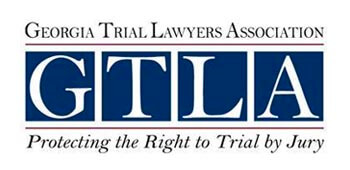People in Macon who have been injured often ask the same question right away: “What is my case worth?” And while it is a fair question, the honest answer is not as quick or clean as folks might hope. The value of a personal injury claim depends on a combination of factors, some visible on paper, others buried in timing, documentation, and how the local court system tends to treat similar cases. In Georgia, and specifically in Bibb County, the same injury could be valued differently based on who documents it, how consistently it is treated, and how early the legal team gets involved. This guide explains how claims are truly valued, not by guesswork or averages, but by structure, law, and practical realities specific to Macon.
1. Why You Cannot Know Your Claim’s Worth Right Away in Macon
No experienced lawyer in Macon will give you a hard number during your first consultation. And if they do, you should be cautious. At the start, the true extent of your injuries often is not clear. You may feel sore but seem “okay” initially, only to find out weeks later you have a herniated disc or nerve damage that was not visible on a first scan. Medical costs can escalate. Time off work may stretch beyond a few days. And most importantly, the insurance company will not take your word for it. They will want proof at every step. Until your treatment stabilizes and the full picture is visible, any number given would be guesswork.
That said, a good attorney will begin outlining the categories of damages immediately. These include economic damages like medical bills and lost income, as well as non-economic ones like pain, suffering, and emotional distress. What you feel matters, but how it is documented is what counts. In Macon, insurance adjusters often base early offers on limited records. If your condition evolves and it is not updated in writing, they will not account for it. That is why waiting for the “final picture” is not procrastination. It is building accuracy. Case value in Macon is not about what you say you experienced. It is about what your records, treatments, and consistency prove over time.
2. How Medical Bills and Lost Wages Drive Settlement Value in Macon Cases
In Macon, like the rest of Georgia, two of the biggest drivers of a personal injury claim’s value are your medical expenses and lost earnings. These are what we call economic damages—things you can assign a dollar figure to. If you were hospitalized, needed follow-up care, went to physical therapy, or had to take medication, all of that goes into your claim’s financial base. But here is the thing. Insurance companies often push back on charges they see as “unnecessary” or “inflated,” especially if they come from providers they do not recognize. That happens more often than you would think in Middle Georgia.
The same goes for lost income. If you missed work, you need documentation, not just a note from your boss, but sometimes payroll records, tax returns, or a doctor’s statement tying your absence directly to your injury. And if you are self-employed, the burden of proof is even higher. In some Macon cases, we have had to bring in economic experts to project what a small business owner would have earned if not for the injury. The stronger your paper trail, the harder it is for the defense to minimize your loss. Your word counts, but documents seal the deal. A good personal injury lawyer builds this part of the case like a tax audit: organized, detailed, and airtight.
3. Understanding Pain and Suffering Compensation in Middle Georgia
Unlike hospital bills or pay stubs, pain and suffering cannot be added up with a calculator. But they are just as real, and in some Macon cases, they account for the majority of the settlement. Georgia law recognizes non-economic damages like chronic pain, anxiety, sleep disruption, loss of enjoyment of life, and emotional distress. The problem is that these are subjective, and insurance adjusters know how to devalue them. They will look for inconsistencies, like gaps in treatment or journal entries that do not match your medical timeline. And if your daily life is not documented clearly, they will argue the impact was not severe.
To make a legitimate case for pain and suffering, you need more than just telling your lawyer you “do not feel like yourself.” We encourage clients to keep journals describing what daily life is like post-injury, how it affects their sleep, their ability to do normal things like driving, cleaning, or playing with their kids. In Macon courtrooms, we have seen juries respond to simple, real-world details far more than abstract complaints. One client wrote, “I have not picked up my daughter since the wreck.” That stuck. If you want this type of damage to be valued properly, you have to show, not just say, how your life changed.
4. The Role of Future Medical Costs in Macon Personal Injury Lawsuits
One of the biggest mistakes injury victims make is settling too soon, before the full cost of future care becomes clear. You might finish your initial treatment and feel better, but later realize you need injections, physical therapy, or even surgery. In Georgia, you only get one shot at recovery. Once a case is closed, it cannot be reopened because new symptoms showed up later. That is why estimating future medical expenses is so critical, especially in Macon where jury awards are based on the evidence presented, not what might be true down the road.
To do this right, we sometimes work with medical experts to create what is called a life care plan. It outlines likely future treatments based on your diagnosis, age, activity level, and medical history. This is particularly important in spinal injuries, soft tissue trauma, or anything involving chronic pain. Without that projection, insurance companies will act like you are done healing the minute your therapy ends. A good personal injury attorney makes sure your claim reflects what you have already been through and what you are going to face years from now. That foresight can mean tens of thousands more in your settlement, or nothing if skipped.





